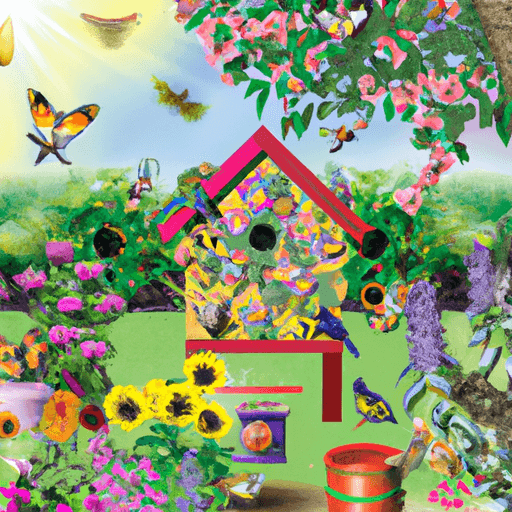Creating a Pollinator-Friendly Garden: Attracting Bees, Butterflies and Birds
Creating a garden with a rich variety of plants isn't just a visually rewarding endeavor; it also serves as an essential habitat for our pivotal pollinators. Bees, butterflies, and birds play a crucial role in maintaining our ecosystem by ensuring crops' and flowers' continued proliferation.
The Role of Pollinators in our Ecosystem
Bees and butterflies serve as direct agents of pollination. They transfer pollen from the male parts of a flower to the flower's female parts, effectively facilitating fertilization. This results in the production of fruit and seeds. Birds, particularly hummingbirds, also contribute as pollinators, transferring pollen on their beaks or feathers.
Pollinators are often overlooked, but without them, our plates and gardens would be significantly less colorful and nutritious. However, due to factors such as habitat loss, pollution and pesticide use, many pollinator species are threatened, adding even more urgency to create hospitable conditions in our own backyards.
Practical Tips for a Pollinator-Friendly Garden
Creating a pollinator-friendly garden nurtures both local wildlife and our native flora. Here are some practical tips to make your garden attractive to bees, butterflies and birds.
Plant Diversity
Providing a diverse range of nectar and pollen-rich plants encourages an equally diverse range of pollinators. Include a variety of flowering plants, from trees and shrubs to herbs and grasses. Choose native plants such as milkweed, lavender, sunflowers, and bee balm; they are often more attractive to native pollinators and more resistant to pests.
Provide Water Sources
Pollinators need fresh water to survive. Install shallow water dishes, birdbaths or ponds in your garden.
Provide Shelter
Avoid disturbing nests and hibernating insects. Dead wood and piles of leaves can provide good homes for insects, while thick hedges and mature trees can offer excellent nesting sites for birds.
Avoid Pesticides
Pesticides can be harmful to pollinators. Try organic methods to manage pests instead.
Contributions to Biodiversity and Conservation Efforts
Preserving and creating pollinator-friendly habitats contributes significantly to biodiversity by providing shelter and food for a wide range of wildlife. Simultaneously, it supports larger environmental conservation efforts by helping maintain our ecosystem's health. Whether it's a city balcony or a country meadow, every garden can be adapted to be more welcoming to these incredible creatures.
In conclusion, creating a pollinator-friendly garden is more than a hobby; it's a step towards contributing to sustainability and environmental protection. So go ahead, roll up your sleeves and make a world of difference in your backyard!


















Comments
Leave a Comment